Compare
Free shipping
Best price guarantee
SimpleCrew exclusive savings
0% financing options
Tire replacement coverage
24/7 roadside assistance
Easy returns
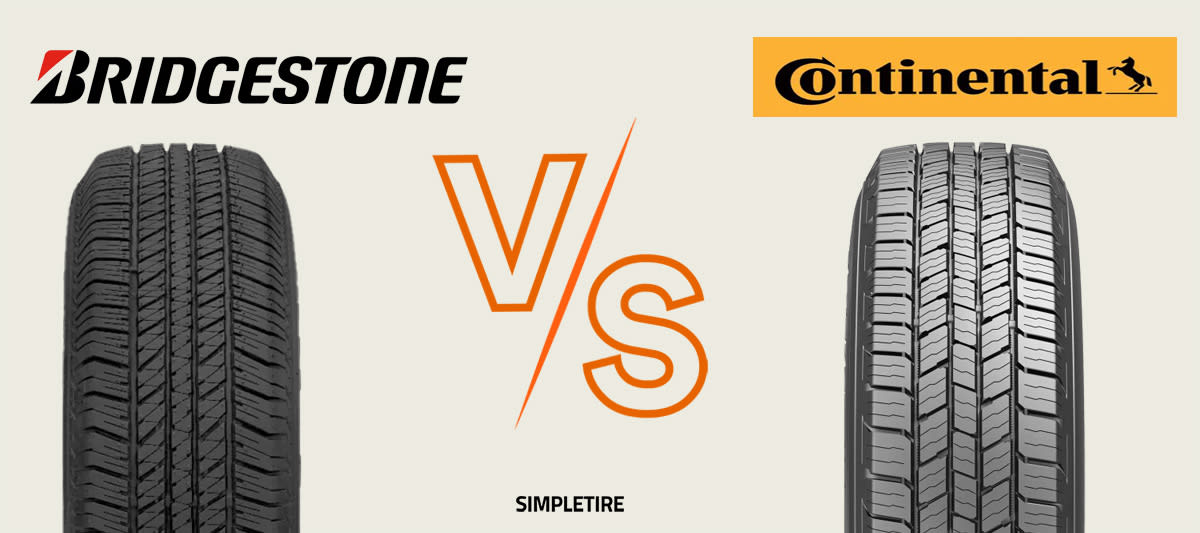
Light trucks and SUVs are everywhere on the roads these days, and if you haven’t already noticed, they’re the vehicles that have taken the place of big family sedans, station wagons, and minivans. With every passing year and generation, they’re more refined and comfortable, with better handling, better road manners, more features, and more standard equipment and amenities. But the truth is that most light trucks, even ones that are equipped with 4WD, never leave the pavement and go off-road in mud, sand, loose dirt, or gravel. Just like for drivers of sedans and minivans, all-season or highway tires make the best sense for trucks like those. Like their automotive all-season counterparts, highway tires for light trucks deliver great wear properties and good limited manufacturer’s tread life warranties, a quiet and refined ride, capable handling, year-round traction, and composed road manners, making them good do-all solutions for daily driver duties.
That brings us to the Bridgestone Dueler H/T 684 II and Continental Terrain Contact H/T. The Bridgestone and the Continental are both from premium manufacturers and are both designed to check all the boxes we just mentioned, along with enhanced load rating and durability, since they’re designed around the weight, horsepower, torque, center of gravity, and handling properties of today’s light trucks. These tires can also be referred to as all-season tires.
In the course of this product comparison, you’ll see us make frequent reference to the SimpleScore ratings of both tires. If you’re not familiar with SimpleScore, this is the system that SimpleTire’s team developed to give you a quick at-a-glance idea of what a tire is all about. We look at a tire’s specs, product information, customer reviews, and other data points, then distill that to 1-10 numerical values for the categories of traction, handling, longevity, and an overall average SimpleScore. For the Bridgestone Dueler H/T 684 II and the Continental TerrainContact H/T, the SimpleScore rankings shake out as follows:
Bridgestone Dueler H/T 684 II
- Traction: 8.3
- Handling: 8.3
- Longevity: 8.3
- Overall average SimpleScore: 8.1
Continental TerrainContact H/T
- Traction: 8.5
- Handling: 8.5
- Longevity: 9.2
- Overall average SimpleScore: 8.7
As you can see, the Bridgestone and the Continental are tires that both bring a lot to the game and are pretty closely matched when it comes to performance and value, in all the pertinent SimpleScore categories. As handy of a resource as SimpleScore is, it’s still the 30,000-foot view that really doesn’t give a detailed idea of a tire’s pros and cons. Let’s go in and get a closer look with this head-to-head comparison between the Bridgestone Dueler H/T 684 II and Continental TerrainContact H/T:
Bridgestone Dueler H/T 684 II tires
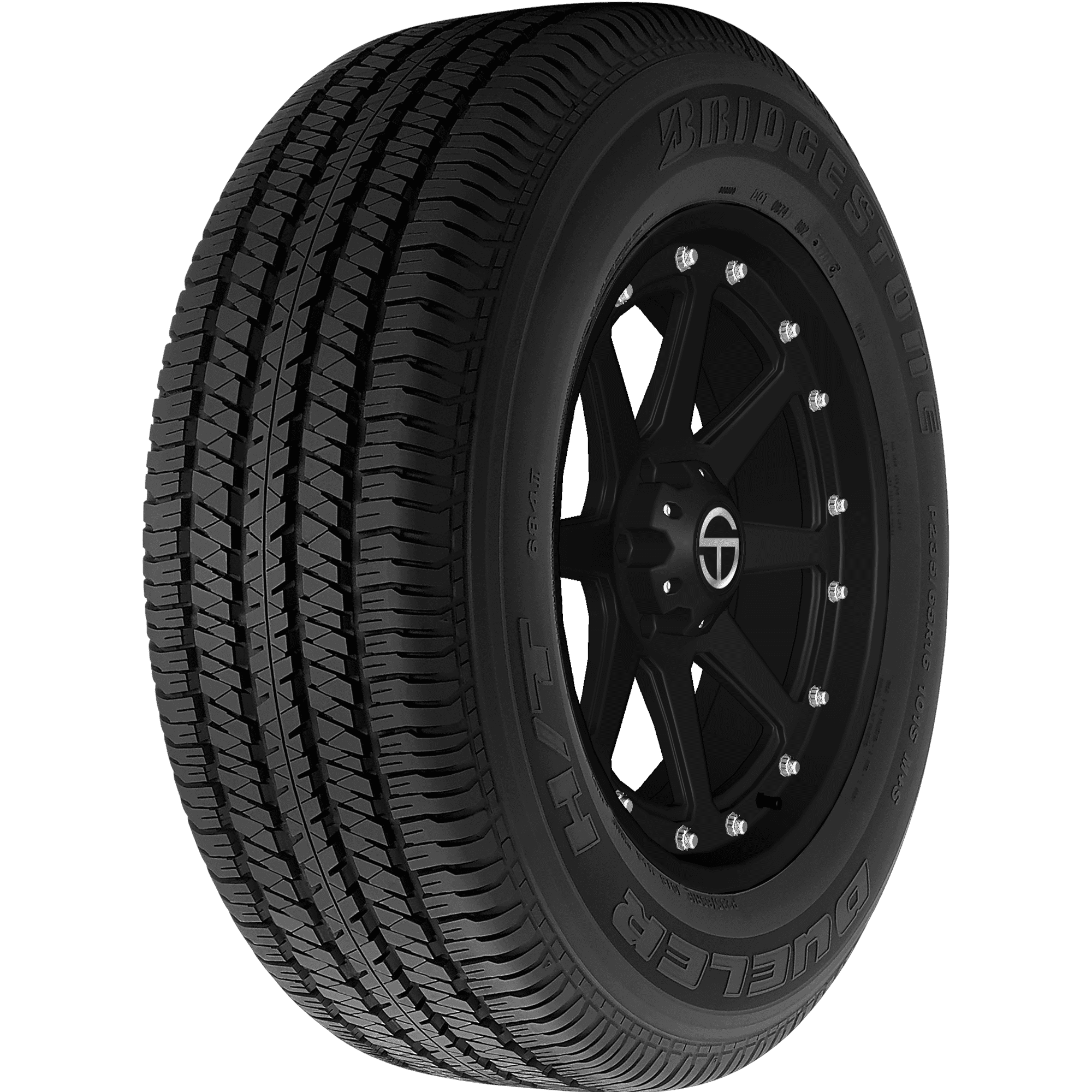
Bridgestone’s Dueler H/T 684 II is everything that a highway-terrain light truck tire is supposed to be about. The Dueler H/T 684 II features an advanced tread formulation for long, even wear and enhanced wet-weather traction, and gets excellent stability and road manners on the highway thanks to a polyester casing, a twin high-tensile steel belt package, and a spiral-wound nylon cap ply. A solid shoulder rib enhances the Dueler’s cornering ability and encourages even wear, and a system of sipes, circumferential, angled, and lateral grooves all work together to deliver dependable traction on wet or dry roads. Bridgestone’s construction methods and casing design ensure that the Dueler H/T 684 II keeps its roundness even as the tire wears down, for continued ride comfort and wheel balance. Bridgestone covers the Dueler H/T 684 II with a 60,000 mile limited manufacturer’s tread life warranty. SimpleTire’s price on the Bridgestone Dueler H/T 684 II starts at $139.96 per tire.
Continental TerrainContact H/T tires
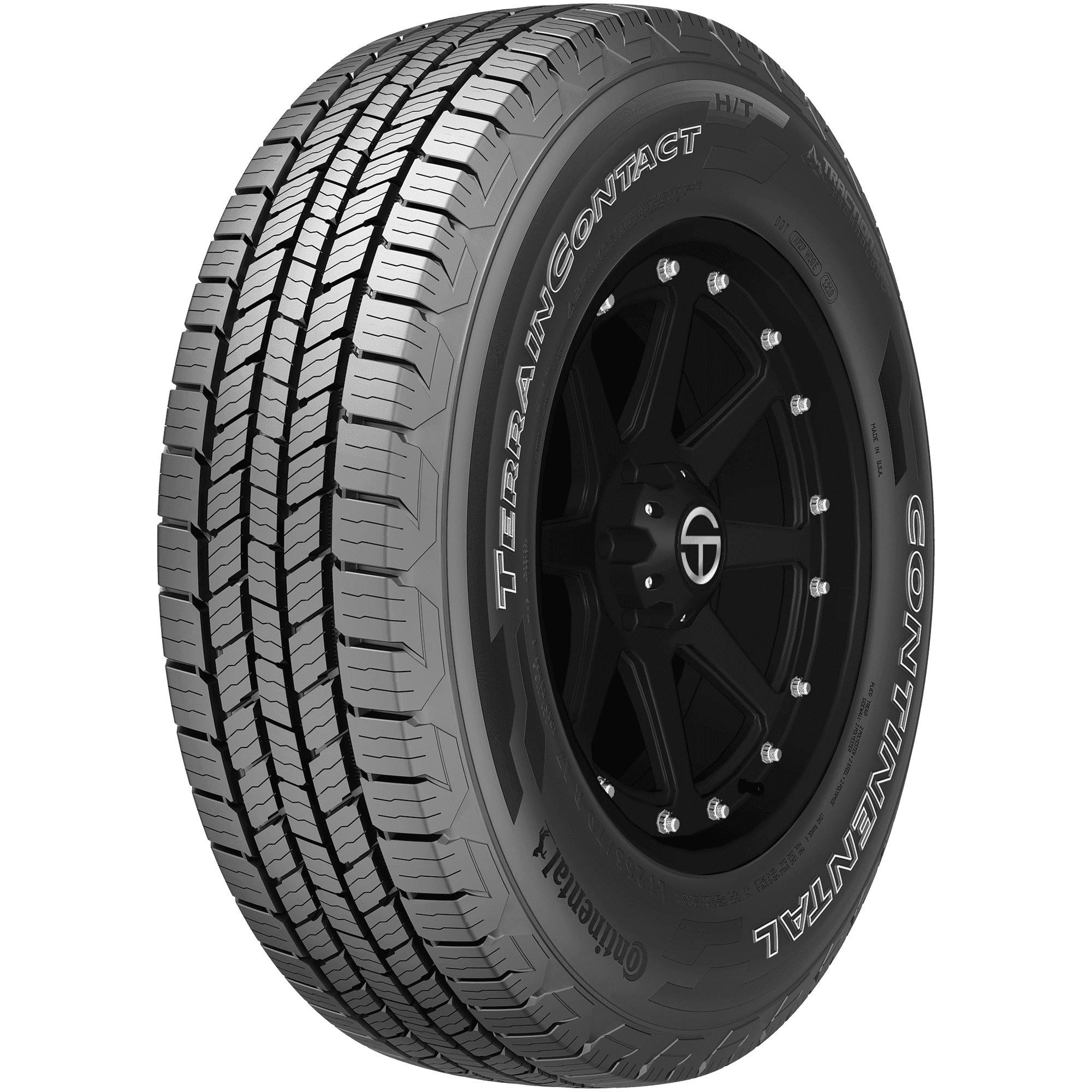
The Continental TerrainContact H/T is packed with advanced features and technology to make it a capable, dependable highway-terrain tire for light trucks and SUVs. Continental’s proprietary +Silane tread compound is engineered for damage resistance, long wear, and great traction, while large, stable shoulder blocks boost cornering performance and overall durability. Its excellent SimpleScore for traction is thanks to circumferential grooves and notches that help remove water from the tire’s contact patch to avoid hydroplaning, along with sipes and Traction Grooves that help boost winter traction by biting into snow and slush. For stability and durability, there’s a 2-ply polyester casing with twin steel belts and dual spiral-wound cap plies; Continental covers the TerrainContact H/T with a 70,000 mile limited manufacturer’s tread life warranty and a 60-day trial period. SimpleTire’s price on the Continental TerrainContact H/T starts at $205.99 per tire.
Bridgestone Dueler H/T 684 II vs Continental TerrainContact H/T tires on traction
How do the Bridgestone and the Continental stack up against each other when it comes to traction? It’s pretty close, with the Continental registering a SimpleScore of 8.5 vs. 8.3 for the Bridgestone. We should note that concerning winter, neither tire has an M+S mud/snow rating or 3 Peak Mountain Snowflake certification for severe winter service. The Traction Grooves system of the Continental isn’t just for snow, though; its comprehensive pattern of grooves, sipes, notches, circumferential and lateral grooves all work together (along with the +Silane tread compound) for a distinct edge in traction on wet or dry roads, with improved handling and shorter braking distances. Our decision:
ADVANTAGE: Continental TerrainContact H/T
Bridgestone Dueler H/T 684 II vs Continental TerrainContact H/T tires on handling
How do the Bridgestone and the Continental come out when it comes to handling? Looks like the SimpleScores are the same as the traction category, with 8.5 for the Continental and 8.3 for the Bridgestone. The stiffer, more rigid internal construction of the Continental means less tread squirm and deformation while going into a corner (along with the reinforced, solid shoulder blocks), and the tread pattern and sipes give it more confident cornering ability and steering response. Granted, neither the Bridgestone nor the Continental is going to handle like an Ultra-high-performance tire, but the Continental feels nimble and balanced even when pushed hard on winding roads. Our decision:
ADVANTAGE: Continental TerrainContact H/T
Bridgestone Dueler H/T 684 II vs Continental TerrainContact H/T tires on longevity
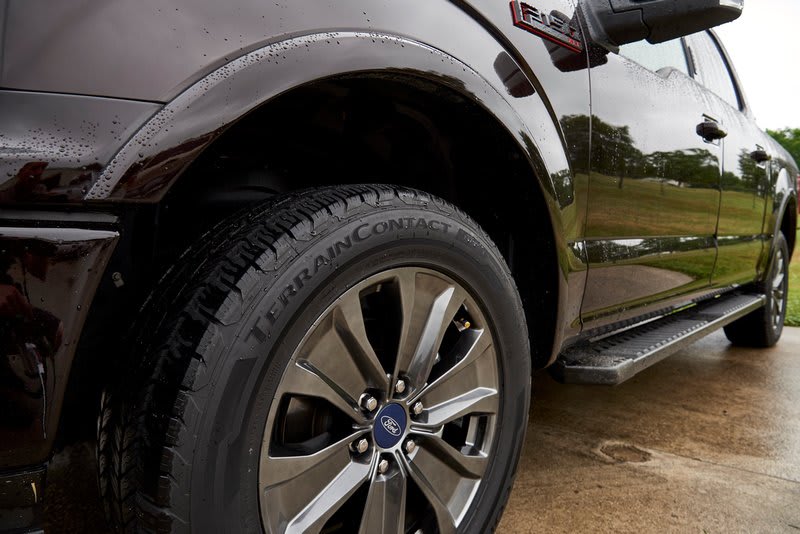
In contrast to how closely Bridgestone and Continental matched up in the other two categories, there is a stark difference in terms of longevity, with the former falling far behind. The Bridgestone comes in with a SimpleScore of 8.3 vs. 9.2 for the Continental. This is one instance where the manufacturer’s tread life warranty tells the whole story, with 70,000 miles worth of coverage for the Continental vs. 60,000 miles for the Bridgestone. It’s really an open-and-shut case on this one, so our decision is:
ADVANTAGE: Continental TerrainContact H/T
When to use each
The big question here is, what do you really need from a tire? If you’re spending most of your time on pavement and hardly ever go off-road into mud or rough terrain, all-season or highway-terrain tires like Continental and Bridgestone should suit your needs quite well. They’re dependable and versatile tires that will offer you a refined and composed ride, handling that’s capable, traction in most weather conditions, and generous manufacturer’s tread life warranty coverage. That said, if you live in a part of the country that experiences rough winters and snow that stays on the roads for days or weeks at a time, these might not be the tires for you; and all-weather or dedicated winter tires might get you through those snowy roads better. Still, for most drivers of light trucks or SUVs, these would offer excellent performance and value as daily-driver tires.
Which one should you choose?
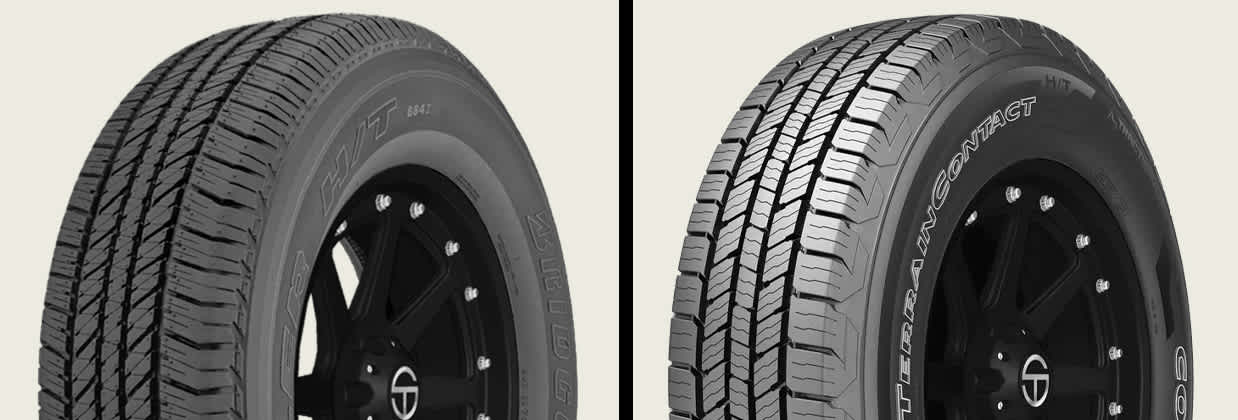
As we saw from the SimpleScore numbers, the Continental edges out the Bridgestone in handling and traction and then outscores it by a large margin when it comes to longevity and limited manufacturer’s tread life coverage. That doesn’t mean that the Bridgestone is an inferior tire, though, and the other consideration here is price. The Bridgestone’s starting price is $139.96 per tire, compared to $205.99 per tire for the Continental. The Continental costs nearly twice as much right out of the gate, which for many drivers is going to make the Bridgestone look a lot more appealing, especially when you consider that there’s not really that big a gap between the two when it comes to performance. Our recommendation: if you can afford the Continental, you should get it. However, if you’re on a little more limited budget and can afford the Bridgestone, it would be a great option. You won’t go wrong either way.
Still not sure which tire to buy? Fortunately, SimpleTire is here to help, and our helpful agents will be more than happy to assist you in selecting the right tire for your ride and budget.
Ready to find the perfect tires?
Search By